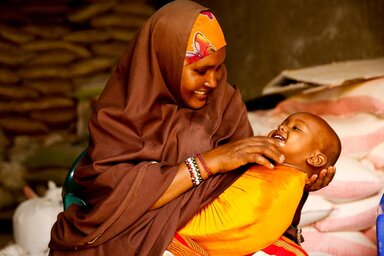
Changing lives
Changing Lives is a core element of WFP’s work to end hunger.
As the world strives to reach Zero Hunger by 2030, communities must be supported to build their resilience and become self-sufficient.
WFP programmes not only provide assistance in emergencies to meet immediate food and nutrition needs, but they also support communities to build resilience in the long-term by addressing the root causes of hunger. By combining humanitarian assistance seamlessly with investment in resilience-based activities, we can break the recurring cycle of crisis and response and empower people to build a more prosperous future.
WFP programmes prioritize nutrition by improving the diets of people at risk, especially mothers and children by targeting the first 1,000 days of a child’s life starting from pregnancy. Once children reach school, WFP continues that support by helping governments to provide children with nutritious school meals which can provide safety nets and lift entire communities out of poverty. WFP also supports governments in building and strengthening their national social protection systems to help people better meet their food security and nutrition needs.
WFP is increasingly providing cash-based transfers to communities to buy food and other things that they need. This is not only empowering it also supports local businesses, and when directed at women helps unleash their economic potential so entire economies grow. WFP implements a gender equality approach across all programmes to improve women and girls’ empowerment and build healthy, prosperous and resilient communities.
Every inhabited region of the world is experiencing the effects of climate change, which is driving hunger around the world. WFP works with communities to adapt to climate impacts, build resilience and transform global food systems for a more sustainable world.






